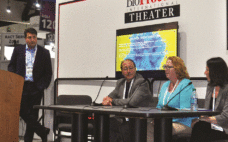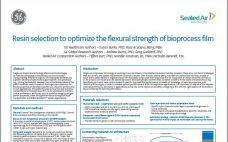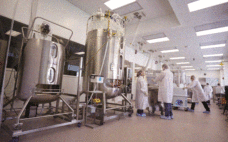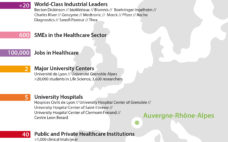On Wednesday, 21 June 2017, BioProcess International presented a panel discussion from 1:20 to 2:30 pm as part of the “Emerging Techniques and Technologies” session of its BPI Theater at the BIO annual convention in San Diego. Moderated by Joshua Speidel (managing director of the commercial practice team at Latham Biopharm Group), this panel comprised Diane Retallack (senior director of upstream processing and intellectual property at Pfenex), Rachel Felberbaum (senior director of business development at Protein Sciences Corporation), and William Taylor…
2017
BPI Lab: Essential Technologies for Development, Characterization, and QA/QC
There’s a secret hiding in plain sight: many analytical methods and technologies initially designed for pre-clinical development have equally important applications in commercial development. BioProcess International and BioTechniques, sister publications and leading journals that combined, cover the entire biopharmaceutical process, from discovery to development and manufacturing, partnered to create this special eBook, highlighting and detailing fourteen analytical technologies that provide laboratory technicians and scientists with vital information to help project managers and engineers make educated decisions that ultimately affect every…
Resin Selection to Optimize the Flexural Strength of Bioprocess Film
Abstract Single-use bioprocess technology offers several advantages for manufacturing biopharmaceuticals, such as increased transportability of fluids throughout the bioprocess workflow and a greater diversity of systems to support specific unit operations, e.g., rocking bioreactors. However, due to the flexible nature of the plastic materials used to construct the single-use containers, the flexural properties of the bioprocess film are critical for performance in such applications. This document focuses on how the resin selection and architecture of a bioprocess film can be…
Continuous Processes: Disposables Enable the Integration of Upstream and Downstream Processing
Despite decades of advancement in characterization analytics, biotherapeutics still are largely defined by the manufacturing processes used to make them. This linking of process to clinical results (and thus to commercial success) has made the biopharmaceutical industry somewhat risk-averse when it comes to the adoption of new technologies. That desire to “derisk” biomanufacturing through better process understanding — as well as the need to adapt to uncertainties in patient population size through process flexibility — in turn drives the need…
The Value of Single-Use and Other Flexible Technologies
The biopharmaceutical industry is adding mammalian cell culture capacity at rates that we haven’t seen in over a decade. Over the past five years (2012–2016), we estimate that industry-wide capacity has increased from 3.4 ML to 4.0 ML, an increase of 18% (1). We estimate that industry-wide capacity will increase over the coming five years (2016–2020) to 5.7 ML, an increase of >40%. Clearly, this growth is a response to the continued increase in demand for biopharmaceutical products and to…
Difficult-to-Express Proteins: Resolving Bioprocessing Challenges with a Scalable Perfusion Bioreactor
Recent advances in protein engineering have identified new classes of complex biotherapeutics that challenge existing manufacturing platforms. These products have unique cell culture requirements that make them difficult to manufacture cost effectively. Industry standard bioprocessing platforms include large-scale (1,000–5,000 L) batch and fed-batch stirred-tank bioreactors. Historically, the powerhouse molecule of the biologics industry has been human IgG, which necessitates those large-scale platforms. Difficult-to-express proteins and other new modalities (including precision medicine and orphan drugs) have increased pressure on manufacturers to…
Is Continuous Downstream Processing Becoming a Reality?
Over the past 30 years, several biopharmaceuticals have been produced by continuous cell culture processes run in a chemostat or perfusion mode. In most cases, no alternative was available to produce certain unstable molecules (1). However, downstream processing is and has remained a step-by-step batch operation. Continuous processing generally requires more process knowledge, equipment, and technological advances than do batch processes. With the maturity of bioprocessing and increasing awareness of manufacturing costs, companies are focusing on developing continuous downstream processing…
May 2017 – From the Editor
The first half of 2017 has been leading us to next issue’s focus on the state of the industry. Although we are not officially calling it our “15th anniversary issue,” that of course is what prompts our focus on progress and future projections. By the time you read this, that issue will be on its way to the printer. So here are my thanks, in advance, to those of you who took time with our related survey. We editors look…
May Spotlight
Welcome New Editorial Advisor David Rabuka is global head of research and development in chemical biology at Catalent Biologics, with overall responsibility of overseeing continued research and development of SMARTag technology. He also oversees strategy, resource allocation, and scientific oversight of preclinical and clinical studies. David joined Catalent Biologics following Catalent’s acquisition of Redwood Bioscience Inc., where he was founder, president, and chief scientific officer. David’s scientific areas of expertise include chemical synthesis; drug delivery; translational research; chemistry, manufacturing, and…
Innovating in France’s Auvergne-Rhône-Alpes Region
Lyonbiopole is a French “bio-cluster” based in the Auvergne-RhĂ´ne-Alpes region surrounding Lyon (Figure 1). The cluster supports ambitious projects and companies in the broad health industry, counting more than 200 members including Lyonbiopole’s four founders: Sanofi Pasteur (the vaccines division of multinational pharmaceutical company Sanofi), bioMĂ©rieux (known worldwide for in vitro diagnostics and microbiological testing), Merial (an animal-health company that merged recently with Boehringer Ingelheim), and Becton Dickinson (supplier of flow cytometers, reagents, tools, and services). The region also is…









